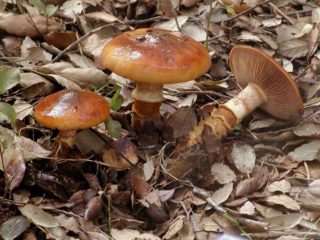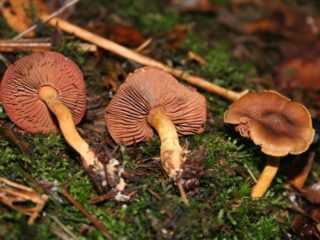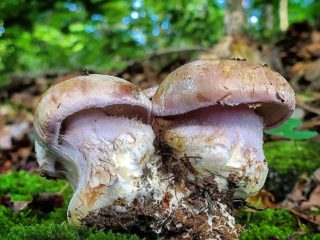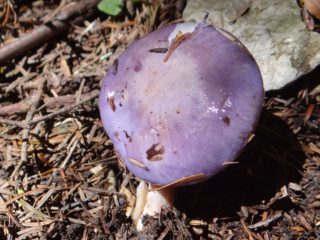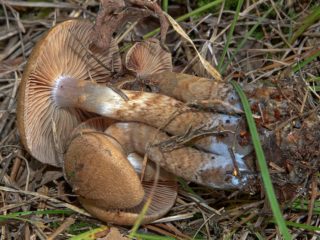Content
Spiderwebs are a genus of Basidiomycetes belonging to the Agaric class, popularly called them. Light ocher webcap is a lamellar mushroom, a representative of this genus. In the scientific literature, its Latin name is found - Cortinarius claricolor.
Description of the webcap light ocher
It is a dense, sturdy, small mushroom. In the forest, it can be found growing in large families.
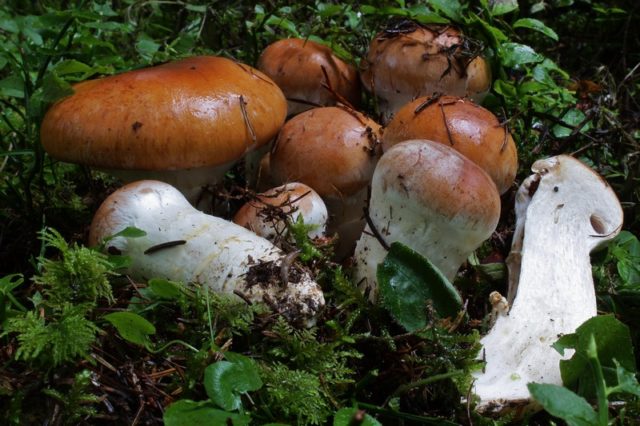
Single copies are rare
Description of the hat
In young mushrooms, the cap is round, smooth, slimy, the edges are bent down, its diameter does not exceed 5 cm. The color of the outer surface is light brown or dark beige. Old, overripe fruiting bodies have a spread, almost flat, dry, wrinkled cap, its diameter can reach 15 cm.
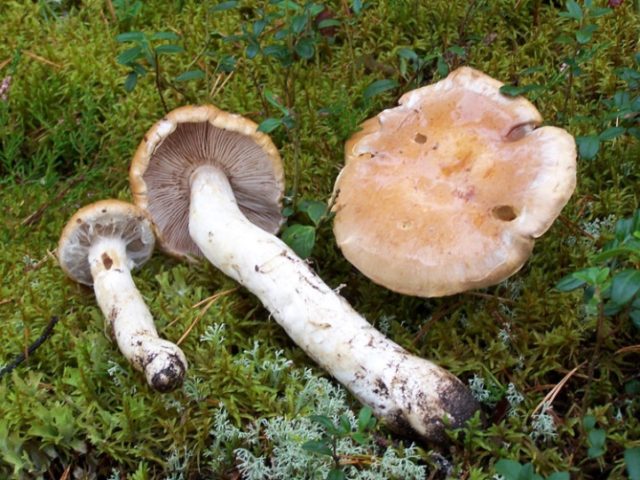
Below, on the surface of the cap of young light ocher cobwebs, one can observe a light thin film in the form of a veil, which hides the plates
As the cap grows and opens, such a cobweb bursts; in overripe specimens, its remains are visible only at the edges. Because of this feature, basidiomycetes were called cobweb.
In young mushrooms, the plates are frequent, narrow, light, mostly white, over time they darken, become dirty beige.
Leg description
The leg of the light ocher cobweb is long, fleshy, almost even, and slightly widens towards the bottom. Length does not exceed 15 cm, diameter - 2.5 cm. Its color is off-white or light gray.
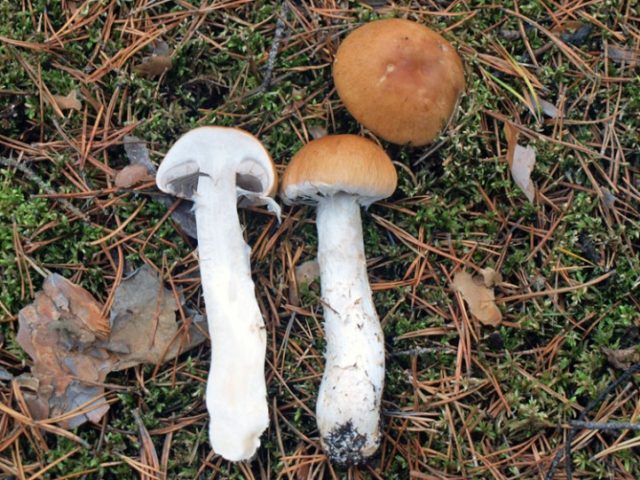
The inside of the leg is not hollow, fleshy, juicy, evenly white
The remains of the bedspread are located across its entire surface. The smell is pleasant, mushroom, the taste is not pronounced, the places of the cuts do not darken. Wormholes are rare, as insects do not like to feast on cobwebs.
Where and how it grows
The spider web is light buffy in the temperate climate of Europe, in the highlands. In Russia, this is the European part (Leningrad region), Siberia, Karelia, Murmansk region, Krasnoyarsk region, Buryatia.
A representative of the Agaricaceae family grows in dry coniferous forests, in open glades. Most often found in moss thickets. The spiderweb grows light-buffy in large families, less often you can find single specimens. Mushroom pickers testify that it can form so-called "witch circles" with 40 fruiting bodies in each.
Is the mushroom edible or not
In the scientific literature, basidiomycetes are classified as inedible, weakly poisonous mushrooms. Some lovers of quiet hunting argue that after prolonged heat treatment, the fruit bodies of the light ocher cobweb are edible. And yet, they are not recommended for consumption in any form.
Doubles and their differences
The young spiderweb is light buffy similar to the White mushroom (boletus) - an edible, valuable Basidiomycete with high taste. There are practically no external differences between them. Upon closer examination, it turns out that the boletus hymenophore is tubular, and in the cobweb it forms in the form of plates.
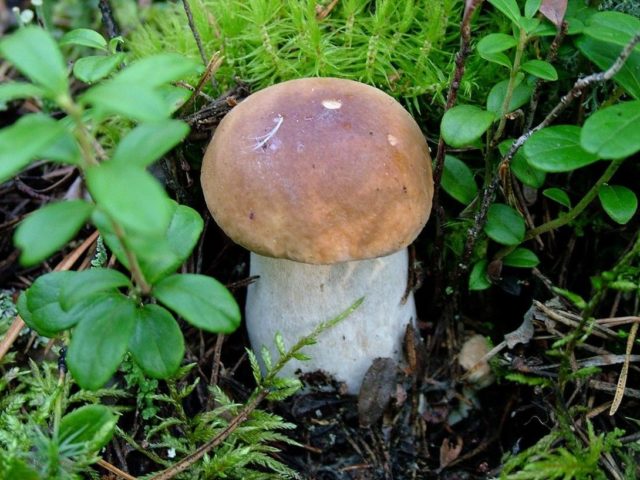
Young porcini mushroom is more fleshy and stocky, its cap is matte, velvety, dry
Another double is the late webcap. The Latin name is Cortinarius turmalis. Both species are representatives of the Webinnikov family. The double has a brighter hat, its color is dark orange or brown. This representative of the species grows in deciduous forests and is inedible.
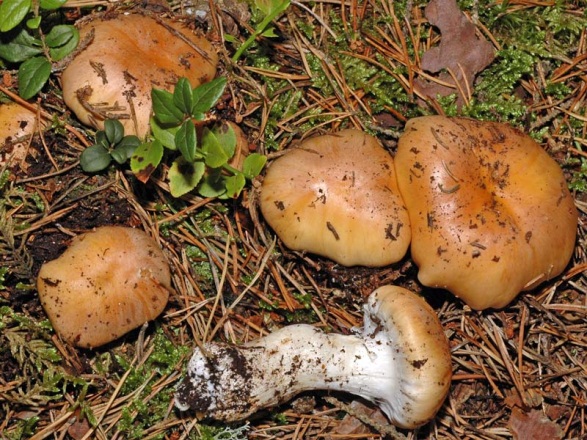
The hat of the late cobweb is more open than that of the light buffy, even at a young age
Conclusion
Light ocher webcap is a mushroom that is often found in the coniferous forests of Russia, Europe, and the Caucasus. Young specimens can be confused with valuable boletus. It is important to study their differences well. In a later period of ripening, the wolfberry takes on a form inherent only to him. The fruit body of the described type has no nutritional value, according to some sources it is poisonous. It is not recommended to collect and eat this representative of the Pautinnikov family. This can be unsafe for your health.

